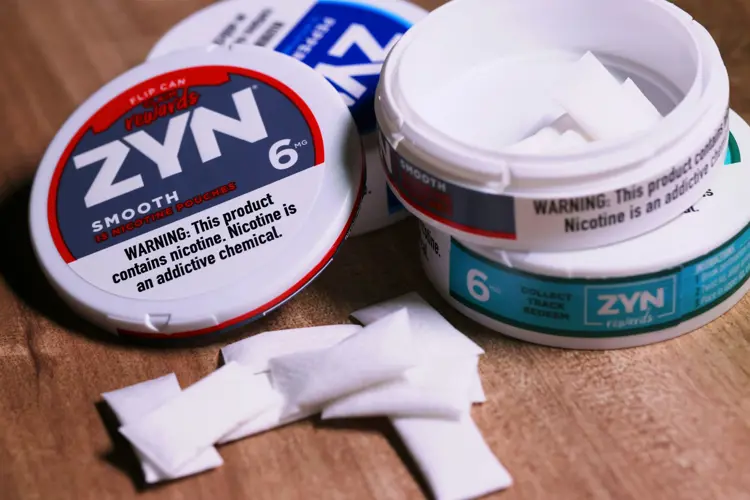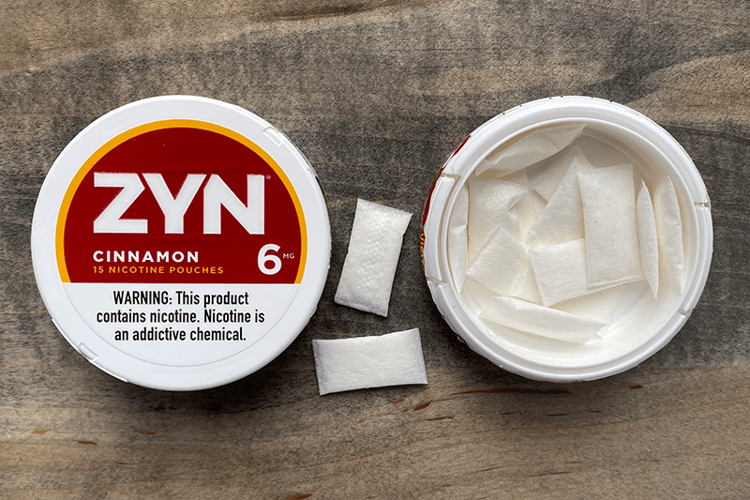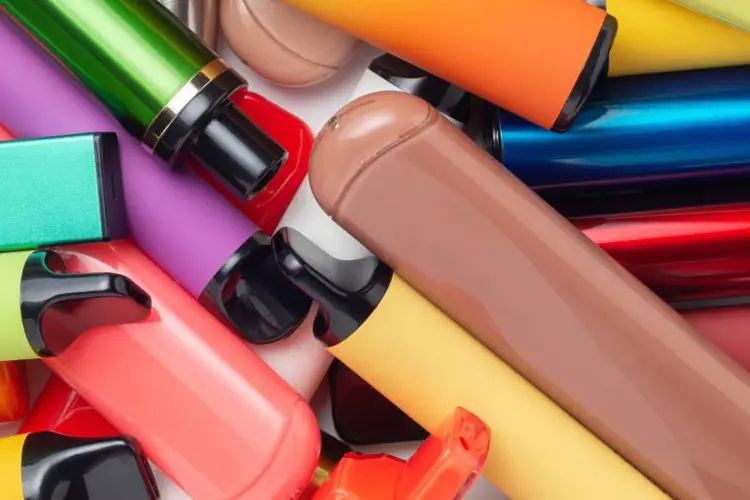Nicotine pouches—and specifically Zyn-brand pouches—went viral this week, thanks to Senate Majority Leader Chuck Schumer’s call for government action to prevent a Juul-like “epidemic” of teen use. Schumer, a Democrat from New York, has been a longtime foe of nicotine and tobacco.
“It comes in a whole lot of flavors,” Schumer said in a press conference last Sunday. “Smooth, spearmint, citrus, cinnamon, chilled. It’s dangerous.” Schumer urged the Federal Trade Commission and FDA to investigate Zyn and other nicotine pouches
"It's a pouch packed with problems—high levels of nicotine,” Schumer said in a press conference last Sunday. “So today, I'm delivering a warning to parents, because these nicotine pouches seem to lock their sights on young kids—teenagers, and even lower—and then use the social media to hook 'em."
But few teenagers use nicotine pouches. Results from the 2023 National Youth Tobacco Survey showed just 1.5 percent of middle and high school students used a nicotine pouch at least once in the past 30 days. Far fewer used pouches regularly—and those results are for the entire product category, not just Zyn.
.
Zyn is the top-selling nicotine pouch
Nicotine pouches are consumer oral nicotine products. They consist of porous fiber bags filled with cellulose or other food-grade fillers, flavorings, and varying levels of nicotine. They were modeled after Swedish portion snus, but contain no tobacco.
Zyn pouches are available only in relatively low 3- and 6-milligram nicotine strengths—similar to the levels used in nicotine gum and lozenges sold over the counter as nicotine replacement therapy (NRT).
Manufactured by Swedish snus industry leader Swedish Match, Zyn was launched nationally in the United States in 2019, after several years of regional test-marketing. Zyn has been so successful—dominating the “modern oral product” segment of the U.S. tobacco and nicotine market—that tobacco giant Philip Morris International bought Swedish Match in 2022. Among Zyn’s competitors in the category are the On!, Velo and Rogue brands.
The Zynsurrection: coming to a social media app near you
Schumer’s anti-Zyn tirade led to a white-hot social media backlash, especially among Republican and conservative politicians and observers. “Big Brother Schumer doesn’t want us to chew or smoke,” North Carolina Representative Richard Hudson wrote in an X/Twitter post. “Now he’s against an alternative that’s helped many quit. Come and take it!” Hudson is chair of the National Republican Congressional Committee.
According to political reporter Dave Weigel, oral nicotine products and Zyn in particular have been adopted by many in conservative circles as a cognitive enhancer. (Nicotine is a proven memory- and focus-enhancing drug.) Former Fox News host and right wing star Tucker Carlson, Weigel says, is famous for his Zyn boosterism.
I'm just happy to be here for the #Zynsurrection pic.twitter.com/Yh8wyA5T11
— GrimmGreen (@GrimmGreen) January 25, 2024
“Democrats, who generally try to avoid conservative media influencers, might not have known how popular ZYN had become in that space,” wrote Weigel. “There, it’s seen not as a vice, but as a work-enhancer—addictive, but well worth the trade-off. It fits in with a broader class of medically questionable supplements, dietary fads, and brain-boosters that have become tightly associated with right-wing and wellness podcasts in recent years.”
Some conservative groups have been invaluable allies to vaping advocates for the last decade. Americans for Tax Reform, for example, did yeoman’s work convincing the Trump administration to drop a flavored vape ban after it had already been announced and backed by the President.
Pretty hard to say the meme culture around Zyn is proof the manufacturer is targeting children when 56-year-old members of Congress are finding them entertaining. https://t.co/gKcL6Octud
— Gregory Conley (@GregTHR) January 25, 2024
Not all defenders of Zyn were Republicans though. Democratic Pennsylvania Sen. John Fetterman, a longtime marijuana legalization advocate, told reporters that he wouldn’t support a Zyn ban, even one pushed by Democratic Senate leader Schumer.
“When I am going to have a decision,” said Fetterman, “I’m going to err on the side of more freedom and personal choices and those kinds of things. And I made that same argument when I wanted to legalize marijuana.”
Zyn is already prohibited in two states; more bans could be on the way
Schumer’s call for FDA investigation is unnecessary, since the agency is already evaluating premarket tobacco applications (PMTAs) from Swedish Match and other nicotine pouch manufacturers. But the Senate Leader’s speech may have been intended to tip the scales against FDA authorization for Zyn. Other members of Congress—notably Illinois Sen. Dick Durbin—have used their congressional pulpits to successfully demand FDA action against Juul Labs and other vaping manufacturers.
Tobacco control groups, now intent on ridding the world of nicotine in any form, have recently set their sights on Zyn and other nicotine pouches. Even though pouches don’t contain any substance not also found in similar quantities in FDA-approved nicotine gum, anti-nicotine activists feel justified in calling for taxes, restrictions and bans.
🚨 Here comes the gaslighting. @NYMag writer claims, "No one is really coming for Zyn."
A nicotine flavor ban passed the House in 2020. Flavor ban bills are moving in Michigan and Vermont. California + Massachusetts already ban flavors.
They are, in fact, coming for Zyn. pic.twitter.com/JzBklLtdNv
— Guy Bentley (@gbentley1) January 26, 2024
“Truth Initiative strongly urges the FDA to remove all unauthorized oral nicotine products from the market, and to accelerate their work to eliminate all flavors from tobacco products,” says a December 2023 Truth Initiative tract. “To help prevent young people from starting to use these products, restrictions that curb exposure to the marketing of these products should also be implemented.”
Whether the FDA will follow the wishes of its friends in tobacco control and refuse to authorize nicotine pouches in any flavors that consumers want—as it has with vaping products—those same pressure groups are promoting state and local laws that ban flavored nicotine products like vapes and pouches.
Massachusetts and California have already prohibited sales of consumer oral nicotine products in flavors other than tobacco, and several other states are currently considering similar proposals.
As you read this, Chuck Schumer may have found a new moral outrage
Chuck Schumer was an early locus of the Juul moral panic, calling for severe FDA sanctions on the company in 2017, and continuing to amplify tobacco control talking points in the years-long attack on vaping coordinated by the Campaign for Tobacco-Free Kids. But Schumer hasn’t restricted his faux moral outrage to nicotine products.
Schumer has demanded action on yoga mat chemicals, 3D-printed guns, laundry detergent, laser pointers, energy drinks, bitcoin, drones, high-frequency stock trading, cereal prices, home-made bombs, video games, cadmium in children’s jewelry, and much more.
“No issue,” wrote Reason editor Nick Gillespie in 2015, “is too stupid or inconsequential for Schumer to weigh in on, inevitably calling for a ban or regulation that serves no other possible purpose than to shine a light on the glory and grandeur of Chuck Schumer.”
The Freemax REXA PRO and REXA SMART are highly advanced pod vapes, offering seemingly endless features, beautiful touchscreens, and new DUOMAX pods.
The OXVA XLIM Pro 2 DNA is powered by a custom-made Evolv DNA chipset, offering a Replay function and dry hit protection. Read our review to find out more.
The SKE Bar is a 2 mL replaceable pod vape with a 500 mAh battery, a 1.2-ohm mesh coil, and 35 flavors to choose from in 2% nicotine.
Because of declining cigarette sales, state governments in the U.S. and countries around the world are looking to vapor products as a new source of tax revenue.
The legal age to buy e-cigarettes and other vaping products varies around the world. The United States recently changed the legal minimum sales age to 21.
A list of vaping product flavor bans and online sales bans in the United States, and sales and possession bans in other countries.


















